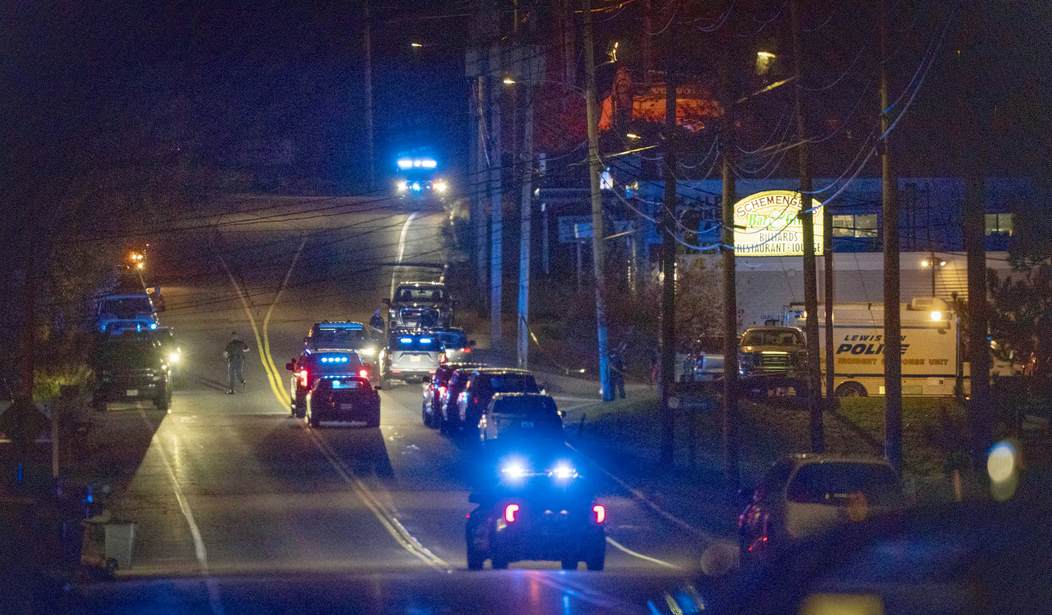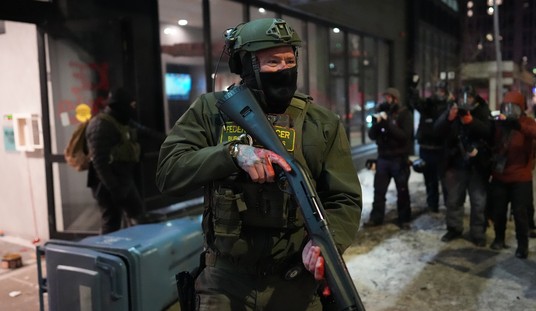The more we learn about the man responsible for the murders of 18 people (and wounding of 13 more) in Lewiston, Maine, the more red flags and missed opportunities to intervene beforehand are being uncovered.
The killer not only flagged himself on a federal form when trying to purchase a suppressor by disclosing his mental illness. As it turns out, police across Maine had been alerted to his earlier threat to shoot up a military base two months ago.
Rick LaChappelle, who runs Coastal Defense Firearms in Auburn, says the killer visited his shop in early August to finalize his purchase of a suppressor. The man had actually bought the suppressor from another shop but had it transferred to Coastal Defense Firearms for pickup, but when he filled out the 4473 he answered “yes” to the question about being adjudicated as mentally defective or committed to a mental institution. That, in turn, prompted LaChappelle to halt the transfer.
By that time, the killer had already spent a couple of weeks at an Army hospital in West Point, New York after exhibiting “erratic” behavior on a field training exercise. Though the FBI told the New York Times that he wasn’t formally flagged in the NICS system, law enforcement throughout Maine were alerted to his threats in early September.
A sheriff in Maine says he sent an alert to all law enforcement agencies in the state last month after learning that an Army reservist had made threats against his base, a notification that came weeks before the reservist fatally shot 18 people in America’s deadliest mass shooting this year.
Sheriff Joel Merry of Sagadahoc County said he sent the alert sometime in September in an effort to find the reservist [name redacted by Bearing Arms] who was said to have made threats regarding the Army Reserve center in Saco, Maine. He said he sent a deputy to Mr. Card’s home but that the deputy did not find him there, prompting the sheriff to send out the notice.
The revelation is the strongest sign yet that law enforcement was aware that Mr. Card was a potential danger before he carried out a rampage at a bowling alley and bar in Lewiston on Wednesday night.
“The guys, from what I know, paid due diligence to this and did attempt to locate Mr. Card and they couldn’t,” Sheriff Merry said in an interview on Saturday night.
The Portland Press-Herald reported on Friday that the suspect was “categorized as “Federal Firearms Disqualified Status,” though they’ve since changed their report to state that “[a]ccording to a criminal history record from the State Bureau of Identification, Card’s ‘Federal Firearms Disqualified Status,’ was listed as ‘unknown’, and the FBI told the New York Times “there was no information on Mr. Card in its background check system that would have prevented him from legally purchasing a gun.”
It’s easy to engage in Monday morning (or Monday afternoon, in this case) quarterbacking, but there were plenty of red flags being thrown up by the murderer in the months before he began his killing spree. His family has said they were increasingly concerned about his mental state and had been in contact with both local law enforcement and the military, the Army placed him in a mental health facility for a period of a couple of weeks earlier this summer, and Sheriff Merry had sent out a statewide alert asking police to keep an eye out for him months ahead of time. Despite all of those concerns, the killer apparently slipped through bureaucratic cracks and was able to avoid contact with law enforcement over the ensuing weeks. The next time he popped up on their radar was after he’d embarked on his murderous rampage, and by then, of course, it was too late.









Join the conversation as a VIP Member